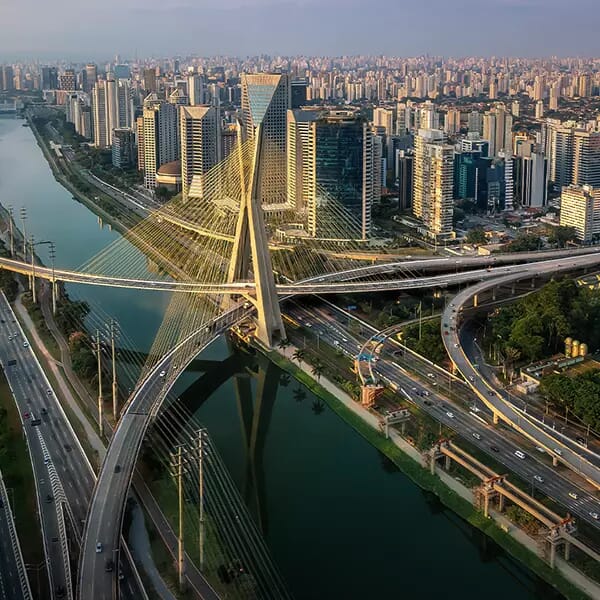 Credit: rawf8 / Envato Elements (Updated)
Credit: rawf8 / Envato Elements (Updated)Key priorities of the new IDB's President
The new IDB Presidente, Mauricio Claver-Carone, was the special guest of day 3 at Infra Latam GRI 2020, the online edition, which gathered around 200 top infrastructure investors in Latin America. Led by the moderation of Willem Sutherland, Head of Latin America at ING, the discussion encompassed not only energy, infrastructure and long term investment in Latin America, but also the COVID-19 topic, which is a major game changer for the region.
Claver-Carone started his very first meeting with GRI Infra members by reinforcing the existing opportunities to increase the impact of infrastructure in the region and stating that in order to meet such needs, Latin America has a double challenge to face: additionally to the COVID-19 pandemic, the region had already low growth rates pre-pandemic. He recognized that countries are currently making difficult choices, however his vision is that the IDB will take a leading role in this processo of successful integration, transport infrastructure development, and digitalization.
One of IDB's key priorities should be education as infrastructure will be key to enable kids to have access to schools and proper education either physically or through digital education, and even in urban areas there is a need for better connectivity.
Beyond education, the IDB's President also pointed out the local governments need to pursue key reforms to minimize political risks, and in this sense, the IDB can help them from a technical cooperation perspective, and also make the bank impactful by softing risks with its flexible guarantees to the private sector. Regardless of political orientation in the region, the premise is that every single government is seeking for FDI and understands its role in their country's growth and development. Having said that, Claver-Carone highlighted that countries should not be protectionist, but create regulatory space and the right incentives instead.
Although only four countries in Latin America are OCDE members (Mexico, Chile, Colombia, and Costa Rica), Claver-Carone understands that there are interesting opportunities in other non-OCDE countries, where there are good atmospheres and incentives. In this sense, he's interested in looking at creating an IDB certification and standards to help institutional investors to have some level of security and create confidence when investing in these countries.
Claver-Carone also highlighted another key priority for the bank in Latin America: job creation. And by increasing connectivity (both physical and digital), he reckons that further commerce and telework will be decisive in creating job opportunities. For example, one of the key successes in the USA is labour mobility, which makes it crucial to increase Internet penetration while looking at social and environmental outcomes.
In terms of whether he sees the IDB competing with other multilateral development banks (MDB) or private financial institutions, Claver-Carone stated that the IDB focus will be on project preparation and bankability, although the bank is willing to participate in the whole life cycle of a project. He wants to increase effectiveness in the entire life cycle of the project, starting with project design, bankability, and engagement with the private sector.
When it comes to the IDB Invest, the bank's arm that supports the private sector, the new president said that they want to do more, and mentioned the recent support given by the IDB Invest to BRK Ambiental, the largest water management company in Brazil in a recent concession win.



